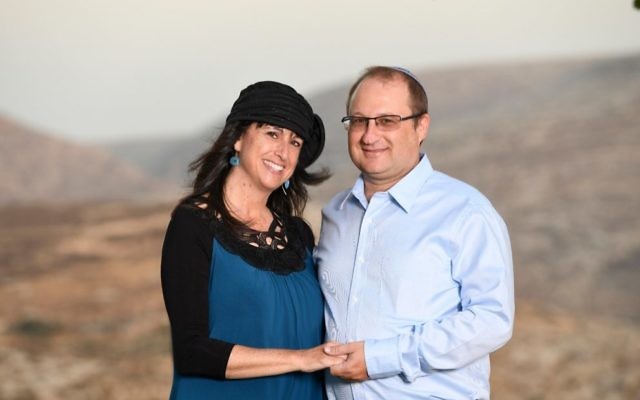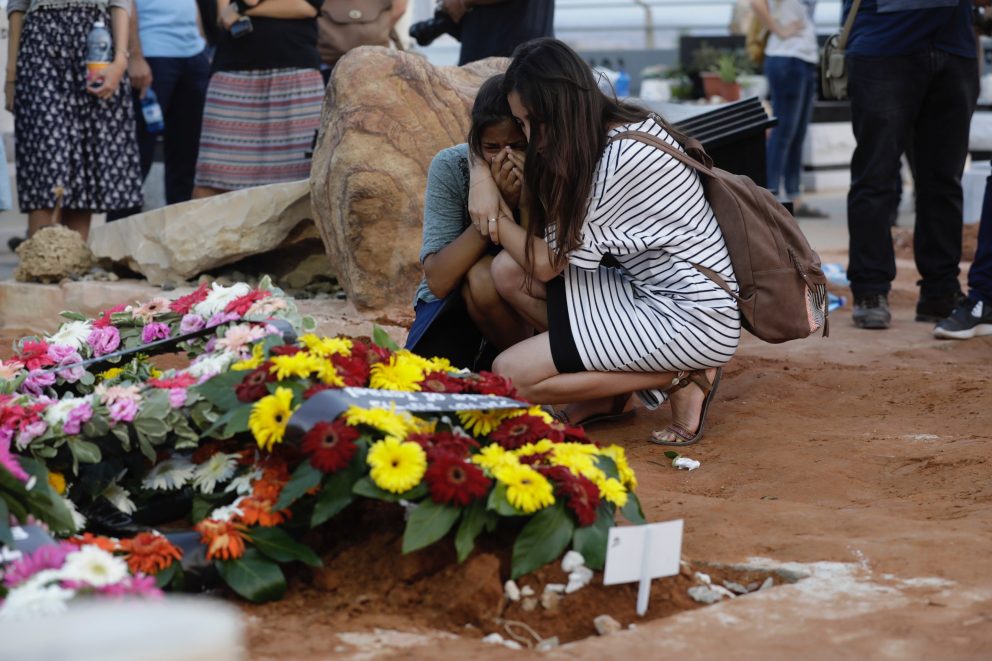‘It was terrifying’
AUSTRALIAN-born Rochelle Cohen has described how her children “shook for literally hours” after last Friday night’s terrorist attack, just 50 metres from her home, which saw three members of a family brutally stabbed to death in the West Bank settlement of Halamish.
AUSTRALIAN-born Rochelle Cohen has described how her children “shook for literally hours” after last Friday night’s terrorist attack, just 50 metres from her home, which saw three members of a family brutally stabbed to death in the West Bank settlement of Halamish.
Cohen, who made aliyah from Melbourne 28 years ago, recounted the ordeal in an emotional interview with The AJN on Tuesday.
“It was terrifying,” she recalled.
The Cohens are the only Australian family in Halamish. Rochelle was at home with her husband Doron, a Sydney native, and four of their five children. And it was meant to be the weekend when they put terror behind them.
They were supposed to be making a kiddush for 300 people on Saturday morning, to celebrate their return home after almost eight months of repairs which followed another terror attack last November.
Arsonists had targeted Halamish, damaging or destroying more than two dozen homes.
“The whole mantra after the fire was that material goods just don’t count,” said Cohen. “But that isn’t going to help us get through now when lives were lost.”
In honour of the kiddush, Cohen’s mother Judy Goldstein, who moved from Melbourne to Modi’in near Tel Aviv five years ago, was visiting. So was her Modi’in-based brother, who made aliyah in 1997, who was staying in the Halamish home with his wife and four young children.
“It was a very traumatic experience for all of them,” Cohen said. “However much counselling you can do, it was a very traumatic experience that will take its toll.”
At first, they did not hear the emergency siren. “Initially, we were still sitting at home eating, the windows were closed and the air-con on, so we heard nothing. Then we heard a noise and looked at each other.
“We opened the window and heard the siren. We turned on our phones and took everyone upstairs. We then started looking around into our garden to see if there were suspicious movements.”
There were already echoes of a past traumatic Shabbat on the night of the arson attack when “we had to get out of bed in our pyjamas and run,” Cohen recalled.
The arrival of emergency services last Friday raised their worst fears. “We saw ambulances arriving but not leaving, which led to a sinking feeling in our stomach. Then we saw hundreds of soldiers arriving.”
They did not know for sure what had happened. Cohen spoke of the “hours of uncertainty and waiting”.
The family was in lockdown, and only at 6am did they get a message saying that at 8.15am they could leave the house. When they did, they learned that their friend Yossi Salomon and his son and daughter were dead, and that their community had again been infiltrated by terror.
Cakes baked for the Cohens’ homecoming kiddush instead became refreshments for soldiers dealing with the tragedy.
Less than 24 hours later, Cohen and her family headed to the funeral. It was “very surreal, it just didn’t make sense.” Her husband, a financial adviser, has been trying to get back into the swing of work but “found himself just staring into space”.
Cohen said that when she made aliyah 28 years ago she knew “there would be a certain amount of sacrifice,” but nothing prepared her for the horrors of last Friday.
“We are emotionally drained, just exhausted physically and emotionally. You can go through the details again and again, but there’s a difference between knowing it on an intellectual level and believing that it happened just 50 metres from our home,” she said. “I saw them buried but I still can’t believe it.”
NATHAN JEFFAY



comments